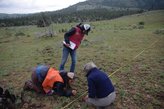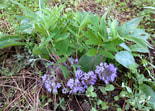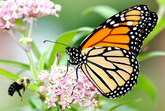High Desert Chapter Projects & Programs
From adopting scablands to monitoring sensitive or invasive species to pulling noxious weeds and planting native gardens and monarch butterfly waystations, the chapter keeps busy throughout the spring and summer months on various projects.
If you can spare some time we are always in need of volunteers! Go to Contact Us to email your interest.
If you can spare some time we are always in need of volunteers! Go to Contact Us to email your interest.
You can also read about our projects and programs in our chapter newsletters!
Medusa-head Project |
Ochoco Scablands |
Monarch Waystations |
Video Recordings of Virtual Programs
Didn't make it to one of our virtual presentations? Below are the recordings, if available.
Native Plants to Save our Insects & Birds
Douglas Tallamy, the author of “Bringing Nature Home and Nature's Best Hope,” gave a presentation at the High Desert Museum in June 2021. An entomologist by training, Dr. Tallamy preaches the gospel of gardening with native plants to save our birds, insects and all manner of wildlife from extinction. The High Desert Chapter and the High Desert Museum partnered with the Bend Pollinator Pathway to bring this talk to Central Oregon.
Douglas Tallamy, the author of “Bringing Nature Home and Nature's Best Hope,” gave a presentation at the High Desert Museum in June 2021. An entomologist by training, Dr. Tallamy preaches the gospel of gardening with native plants to save our birds, insects and all manner of wildlife from extinction. The High Desert Chapter and the High Desert Museum partnered with the Bend Pollinator Pathway to bring this talk to Central Oregon.
|
Click button at left to watch presentation
|



